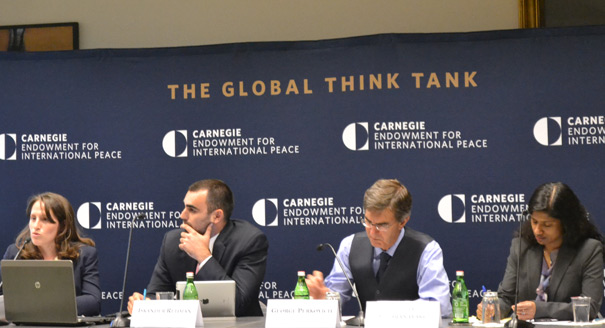Registration
You will receive an email confirming your registration.
With the emergence of the Indo-Pacific as the epicenter of global maritime activity, the rise of the Indian Navy has drawn much attention. Until recently, the bulk of the discussion has centered on the implications for the United States, but India’s naval expansion and modernization will necessarily be shaped in part by its neighbors’ perceptions and responses.
Iskander Rehman, Nilanthi Samaranayake, and Oriana Skylar Mastro broadened the discussion on the trajectory of Indian sea power by exploring the regional perceptions of New Delhi’s naval rise. George Perkovich moderated.
Oriana Skylar Mastro
Oriana Skylar Mastro studies military operations and strategy, war termination, and Northeast Asia, China in particular. She serves as a first lieutenant in the United States Air Force Reserve where she works as an Asia-Pacific strategist at the Pentagon. She is also a Center for Strategic and International Studies Pacific Forum Sasaka Peace Fellow.
Iskander Rehman
Iskander Rehman is an associate in the Nuclear Policy Program at the Carnegie Endowment and a Stanton Nuclear Security Fellow. His research focuses on security and crisis stability in Asia, specifically the geopolitical ramifications of naval nuclearization in the Indian Ocean.
Nilanthi Samaranayake
Nilanthi Samaranayake is an analyst at CNA in the Center for Strategic Studies. Her research at CNA focuses on Asia, particularly the Indian Ocean region, where she has examined security threats in the Bay of Bengal and the potential for U.S.-India security burdensharing in the Indian Ocean.
George Perkovich
George Perkovich is vice president for studies and director of the Nuclear Policy Program at the Carnegie Endowment for International Peace. His research focuses on nuclear strategy and nonproliferation, with a concentration on South Asia, Iran, and the problem of justice in the international political economy.
